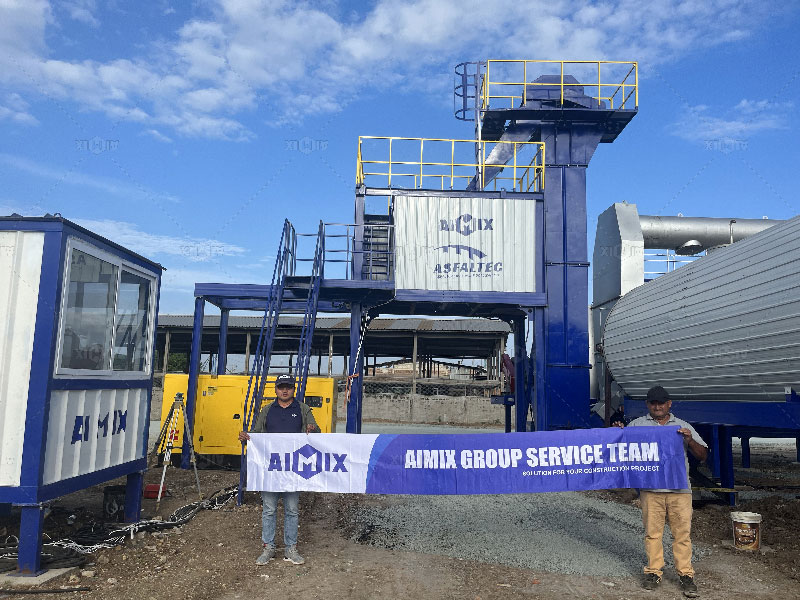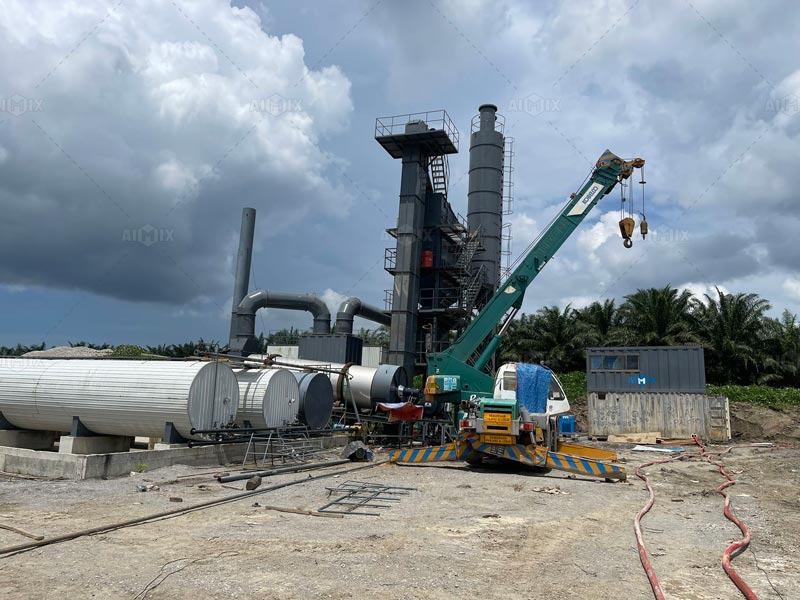Choosing the right mobile asphalt plant is a critical decision for construction companies in Latin America. With growing infrastructure projects, urban development, and road repair works, selecting an asphalt plant that matches production requirements can save time, reduce costs, and increase overall project efficiency. In this guide, we explore key considerations that help customers select the best mobile asphalt plant for their specific needs.

Understanding the Types of Mobile Asphalt Plants
Before choosing an asphalt plant for sale, it is essential to understand the different types available in the market. Mobile asphalt plants(Planta asfaltica movil) are designed for flexibility, easy transport, and rapid setup. They are ideal for construction projects that require frequent relocation or remote-site operations. There are generally two main categories:
Mini Asphalt Plant
Mini asphalt plants are compact and efficient, making them perfect for small to medium-sized projects. Their production capacities typically range from 20 to 60 tons per hour, which is sufficient for rural road construction, municipal projects, or small-scale commercial projects. Mini asphalt plants are cost-effective, easy to transport, and require minimal installation time. For Latin American customers working in regions with limited infrastructure, these plants provide excellent flexibility without heavy upfront investment.
Standard Mobile Asphalt Plant
Standard mobile asphalt plants are designed for larger construction projects, offering production capacities from 80 to 160 tons per hour. They provide more advanced features, such as precise mixing controls, automated feeding systems, and fuel-efficient burners. These plants are well-suited for medium to large infrastructure projects, including highways, urban roads, and airport pavements. Although more expensive than mini asphalt plants, their higher output and operational efficiency can justify the investment for long-term projects.
Key Factors to Consider When Choosing Production Capacity
Selecting the right production capacity ensures that your asphalt plant meets project demands efficiently without under- or over-producing materials. The following factors should be carefully evaluated:
Project Size and Duration
Assess the total asphalt volume required and the project’s expected duration. For smaller projects, a mini asphalt plant(mini planta de asfalto) may be sufficient, while larger infrastructure developments will require a high-capacity mobile asphalt plant. Matching production capacity with project needs helps avoid delays, material wastage, and storage challenges. For example, road construction in remote areas may benefit from a plant that can be quickly relocated, whereas urban projects may prioritize higher throughput.
Location and Accessibility
Construction sites in Latin America often range from urban highways to rural roads. Consider whether the site is easily accessible by trucks and if the terrain allows for plant installation. Mini asphalt plants are advantageous for hard-to-reach sites due to their compact size and lighter weight. Standard mobile asphalt plants may require more careful planning for transportation, assembly, and setup.
Available Utilities and Fuel Options
Determine the availability of electricity, water, and fuel at your construction site. Some mobile asphalt plants are capable of operating with different fuel types efficiently, such as diesel, heavy oil, or natural gas. Choosing a plant compatible with local utilities can reduce operating costs, improve energy efficiency, and simplify maintenance. In remote areas, plants with lower fuel consumption can provide significant long-term savings.
Budget Constraints and Investment Considerations
Cost is a crucial factor. Mini asphalt plants are generally more affordable upfront, but higher-capacity mobile asphalt plants may provide better long-term value through increased production efficiency and lower labor costs per ton of asphalt. Customers should evaluate both initial purchase costs and ongoing operational expenses when deciding which plant suits their needs. Financing options and supplier support can also influence the decision, especially for medium-sized contractors.

Essential Features to Evaluate for Mobile Asphalt Plants
Beyond production capacity, additional features can significantly impact plant efficiency, product quality, and operational convenience.
Automation and Intelligent Control Systems
Modern mobile asphalt plants often include intelligent control systems that monitor mixing ratios, temperature, material flow, and fuel consumption. Automated systems reduce human error, maintain consistent asphalt quality, and simplify operations. Even less-experienced operators can manage the plant efficiently with minimal training, which is especially valuable in areas with limited skilled labor.
Dust and Emission Control Systems
Environmental compliance is increasingly important across Latin America. Mobile asphalt plants equipped with dust collection and emission control technologies reduce air pollution and meet local regulations. These features not only ensure sustainability but also improve worker safety and minimize fines or shutdowns due to non-compliance.
Maintenance and Spare Parts Availability
Consider the availability of spare parts and after-sales support. Reliable suppliers ensure easy access to replacement components and technical support, which reduces plant downtime and maintenance costs. Asphalt plants for sale(planta de asfalto en venta) with widely available parts in Latin America are preferable, especially in countries like Peru, Chile, and Colombia, where shipping delays can impact project timelines.
Choosing an Asphalt Plant Peru for Local Projects
For construction projects in Peru and other Latin American countries, selecting the right asphalt plant Peru(planta de asfalto Perú) is essential to meet local demands efficiently. Factors such as climate, road conditions, and infrastructure development influence the choice of plant capacity and features. A mini asphalt plant is suitable for smaller projects or rural roads, while a higher-capacity mobile asphalt plant is better for large-scale urban or highway projects. Evaluating local availability of fuel, electricity, and maintenance services ensures smooth operations and cost-effective production.
Conclusion
Choosing the right mobile asphalt plant in Latin America requires careful evaluation of project size, location, budget, utilities, and plant features. Mini asphalt plants are ideal for smaller projects and hard-to-access sites, while standard mobile asphalt plants provide higher efficiency for large-scale construction. Considering automation, emission control, and maintenance support further ensures smooth operati